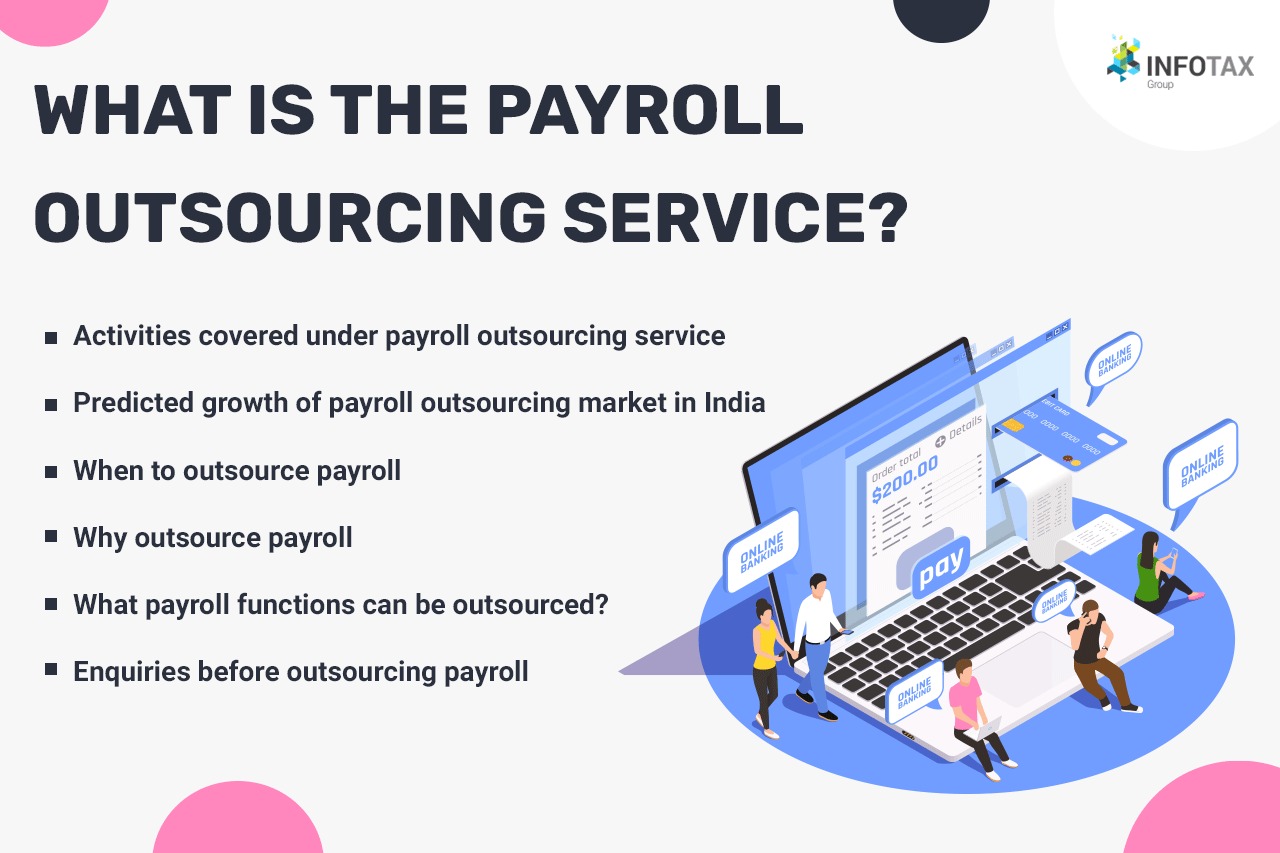Understanding Legal and Compliance Aspects in Your Outsourcing Journey
페이지 정보
작성자 Pamala 작성일25-04-16 01:18 조회6회관련링크
본문

This article is a submission by Managed Services Partners. Managed Services Partners is an outsourcing company with over 6 years of experience helping businesses improve operations and drive growth.
Embarking on the outsourcing journey is an undertaking that lots of companies carry out to improve efficiencies, lower expenses, and utilize specialized skill.

However, together with these prospective advantages come a host of legal and compliance intricacies that need to be carefully browsed to guarantee the success and sustainability of outsourcing initiatives.
This detailed guide will check out key legal and compliance considerations, with a concentrate on data privacy laws, non-disclosure arrangements (NDAs), non-compete stipulations, and the critical function of adaptability in today's dynamic service environment.
The contracting out landscape
Outsourcing is more than a strategy for unloading non-core jobs; it is a transformative method that can improve a business's versatility and competitiveness.
Whether it's IT services, client assistance, manufacturing procedures, or personnels, contracting out can use a considerable edge. Companies that effectively contract out can concentrate on core organization operations, drive innovation, and gain access to top talent without the overhead expenses of full-time employment.
However, this journey is not without its legal and compliance difficulties. Companies must be mindful of the complexities surrounding the transfer and management of data, the defense of copyright (IP), and the upkeep of regulative compliance.
Given the worldwide nature of outsourcing, organizations should likewise consider cross-border legal ramifications, which may vary considerably depending on the country where the outsourcing company operates.
Understanding these aspects is important in ensuring that contracting out collaborations line up with a company's tactical objectives while alleviating possible legal dangers.
In lots of cases, services that disregard legal and compliance considerations deal with expensive disagreements, loss of sensitive data, or reputational damage that can take years to recuperate from.
Importance of legal considerations
Outsourcing naturally involves legal considerations that are important to securing a company's interests. At the leading edge is the requirement to protect sensitive info. Companies need to understand and stick to information personal privacy laws that govern the jurisdictions in which they operate.
This is specifically vital as information breaches can lead to extreme punitive damages and reputational damage.
Furthermore, intellectual property rights should be clearly specified in contracting out contracts to prevent unapproved usage or misappropriation of proprietary properties. If these rights are not appropriately developed, an organization might lose control over vital developments or private company processes.
For services running in highly managed industries such as healthcare, financing, or legal services, compliance requirements are a lot more stringent.
Abiding by policies such as the General Data Protection Regulation (GDPR) in Europe or the Medical Insurance Portability and Accountability Act (HIPAA) in the United States is important to preventing legal issues.
Non-Disclosure Agreements (NDAs) and non-compete provisions
When outsourcing, companies regularly share exclusive info with external provider.
To protect this valuable info, NDAs are utilized. These arrangements are designed to avoid the unauthorized dissemination of secret information, thus safeguarding the company's competitive advantage.
NDAs should be detailed and lawfully binding, clearly describing what makes up secret information and the commitments of both celebrations in dealing with delicate data. Businesses must likewise ensure that their NDAs consist of arrangements for legal option in case of breaches.
Similarly, non-compete stipulations can be consisted of to avoid service suppliers from exploiting sensitive understanding gotten throughout the outsourcing collaboration to benefit a competitor. This is specifically crucial when contracting out freelancers or firms that may have several clients in the same industry.
However, the enforceability of non-compete stipulations can differ substantially depending upon the jurisdiction. Some regions have rigorous policies limiting the scope and duration of such clauses.
Therefore, it's vital for business to seek advice from legal specialists with experience in the pertinent legal structures to draft effective arrangements.
Contracts: Setting the structure
Contracts work as the blueprint for the contracting out collaboration, specifying functions, duties, deliverables, and timelines. They likewise outline the legal and compliance expectations for both parties.
A well-structured contract ought to attend to several crucial elements:
Scope of work: Clear and in-depth descriptions of the services to be provided, consisting of quality standards and efficiency metrics.
Data security: Specific provisions related to data security, data transfer procedures, and breach notice procedures to ensure adherence to privacy laws.
Intellectual Property rights: Provisions that develop ownership of IP produced throughout the partnership, and terms that secure pre-existing IP.
Termination provisions: Terms that deal with the possible end of the outsourcing relationship, including notification durations and conditions under which termination can take place without penalty.
Additionally, organizations should consider executing service-level contracts (SLAs) to make sure accountability and performance tracking. SLAs specify quantifiable standards that the outsourcing provider must satisfy, offering services with recourse if expectations are not satisfied.
Engaging with service companies
Consulting with prospective provider throughout the early phases of the contracting out journey is a tactical move. This engagement permits business to evaluate the supplier's ability to fulfill legal and compliance requirements.
Thorough vetting procedures, such as requesting recommendations, reviewing previous projects, and assessing compliance certifications, can offer important insights into the company's reliability and adherence to market requirements.
Businesses should also evaluate the monetary stability of potential contracting out partners.
A company that deals with monetary challenges may not be able to maintain operations long-lasting, posturing a danger to ongoing projects. Conducting due diligence beforehand can avoid future disturbances.

The function of versatility in legal and compliance methods
Adaptability is an important component of effective outsourcing, especially when it comes to browsing evolving legal landscapes. Regulations and market conditions can alter quickly, making it imperative for companies to remain nimble.
Building flexibility into contracts and establishing procedures for ongoing compliance tracking can help services adapt to brand-new legal requirements and preserve an one-upmanship.

For example, if a business is contracting out client support operations to numerous nations, they should make sure compliance with numerous national laws relating to customer protection and information privacy.
Regularly upgrading policies and contracts in action to legislative changes can avoid legal risks.
Real-world factors to consider and finest practices
To make sure legal and compliance success in outsourcing, services ought to embrace the following best practices:
Regular audits and assessments

Conduct regular audits and evaluations to make sure that service companies remain compliant with legal and regulative requirements. This proactive method can assist identify possible gaps before they intensify into significant issues.
Training and awareness
Educate staff members and outsourced teams on data security practices and legal responsibilities. This makes sure that everybody involved in the outsourcing journey comprehends the value of compliance and the role they play in safeguarding details.
Collaboration and communication
Foster a collaborative relationship with company. Open lines of communication can assist address compliance concerns promptly and facilitate joint analytical efforts.
Crisis management planning

Have contingency plans in location in case of security breaches, contract disagreements, or service provider failures. A well-structured crisis management strategy makes sure that companies can quickly react to difficulties without significant disruptions.
Legal compliance for outsourcing success
Understanding the legal and compliance elements of is vital for companies wanting to take advantage of external abilities while securing their interests. By focusing on essential areas such as data personal privacy, NDAs, non-compete stipulations, copyright rights, and flexibility, companies can successfully browse the outsourcing landscape.
Successful outsourcing hinges on a collective technique between the business and its service suppliers. Building trust and preserving transparent communication can cause efficient analytical and a shared dedication to compliance.

댓글목록
등록된 댓글이 없습니다.







